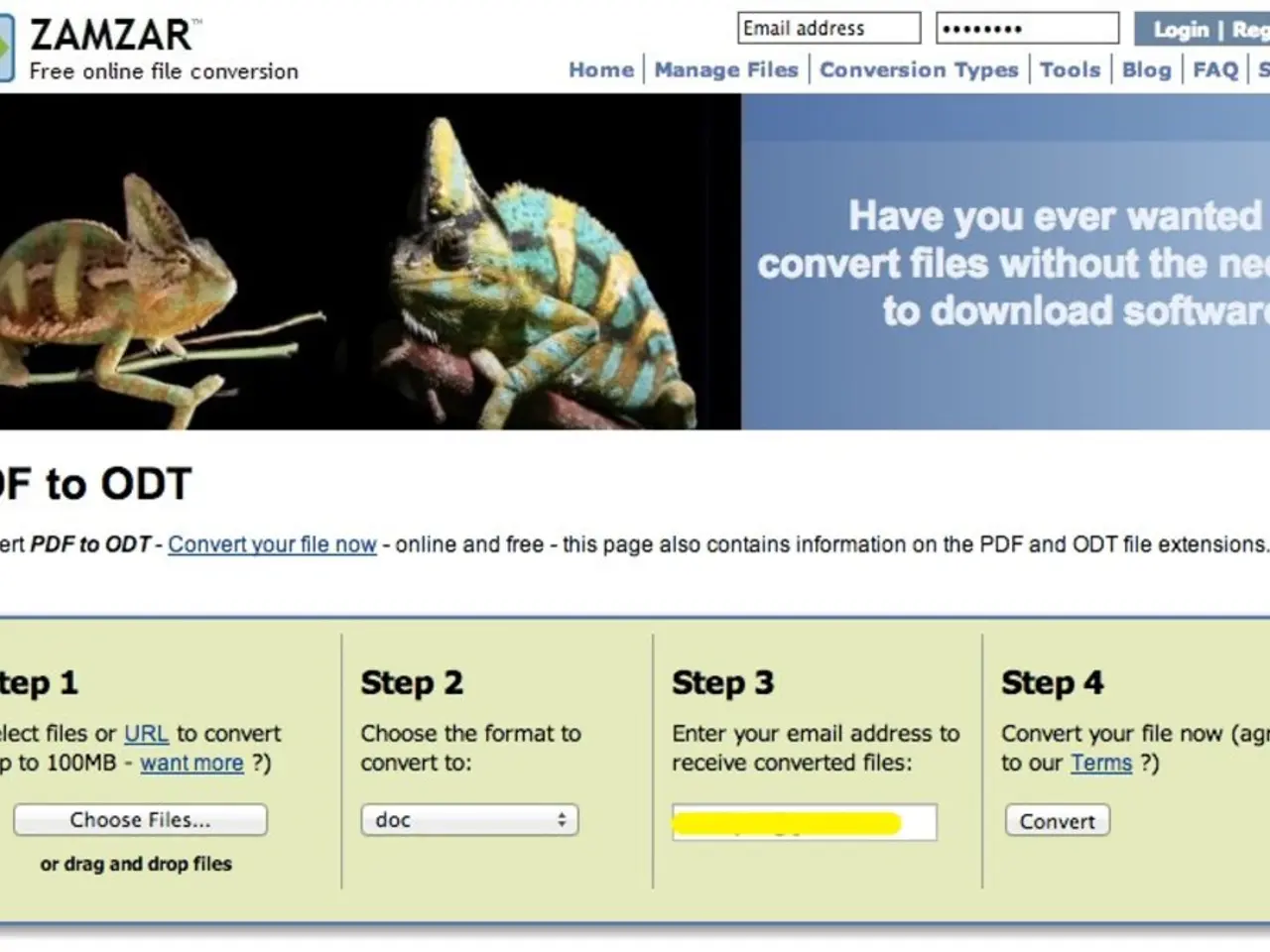Facebook Urged to Revise "Deceptive Terms of Use" by the EU
In a series of recent developments, Facebook, the global social media giant, is facing increased scrutiny and potential sanctions from European regulators over concerns about its data privacy practices, terms of service, and content moderation policies.
Věra Jourová, the European Commissioner for Justice, Consumers and Gender Equality, has warned Facebook about potential sanctions, citing the company's unclear terms about how user data is monetized as a significant concern. The European Commission is particularly focused on Facebook's lack of clarity on its obligations to remove user-generated content and/or suspend or terminate an account.
The EU's regulatory framework for Facebook's operations is shaped primarily by the Digital Services Act (DSA), the Digital Markets Act (DMA), and the General Data Protection Regulation (GDPR), with ongoing enforcement and legal interpretations.
Regarding data monetization and user consent, the Higher Regional Court of Cologne ruled in 2025 that Meta's (Facebook's parent company) use of partially de-identified data for AI training complies with the DMA. However, earlier regulator decisions argued that comprehensive data combination (across Facebook, WhatsApp, Instagram) required genuine voluntary consent for all processing purposes, including personalized advertising. The Bundeskartellamt had previously emphasized that dominant platforms like Facebook cannot override fundamental user rights by justifying data use through economic benefits.
In terms of content licensing and transparency, the DSA mandates all large online platforms, including Facebook, to publish biannual reports on monthly EU user numbers and to provide transparent statements of reasons whenever user content is removed or restricted. Such statements must specify the exact reasons and legal or terms of service references for content moderation decisions, which are then made publicly accessible via the DSA Transparency Database to enhance scrutiny and platform accountability.
Unilateral changes to terms of service are also subject to scrutiny under EU law. While specific provisions about unilateral changes are not detailed in the documents, the strong emphasis on transparency, user consent, and fundamental rights under EU law implicitly constrains Facebook’s ability to unilaterally impose significant changes without clear notification, user consent, or the option to opt-out, especially when these changes affect data use or content handling.
In the United States, U.S. Senators Rubio, Menendez, and Wyden, along with a bipartisan group of seventeen U.S. Representatives, have urged Facebook and Google to resist compliance with Vietnam's new cybersecurity law. The 9th U.S. Circuit Court of Appeals has also affirmed that Facebook can use minor users' pictures and likenesses in ads, a decision that has raised concerns about user privacy and consent.
Facebook's new tool, Town Hall, which allows users to follow and contact their elected representatives, including county board commissioners, mayors, state reps, senators, governors, vice president, and president, may help improve transparency and user engagement in political discourse. However, the company continues to face criticism over its data privacy practices and lack of clarity in its terms of service.
In summary, Facebook's EU operations in 2025 must navigate a regulatory environment that emphasizes user consent, transparency in content handling, limitations on unregulated data combination, and accountability for changes in terms or practices. This framework is actively enforced by EU courts and regulators, as seen in recent legal rulings and decisions. The company must adhere to these regulations to avoid potential sanctions and maintain the trust of its European user base.
| Aspect | EU Regulation & Effect | |--------------------------|-----------------------------------------------------------------------------------------------------------------| | Data Monetization | Requires genuine voluntary consent; dominant platforms face strict scrutiny under DMA and GDPR for combining data | | Content Licensing | DSA mandates transparency in content moderation with public reporting and clear explanation to affected users | | Unilateral Term Changes | Implicitly limited by GDPR and DMA focus on user rights, transparency, and consent; platforms must notify users |
Facebook, in the face of increased scrutiny from European regulators, must adhere to the Digital Services Act (DSA) and Digital Markets Act (DMA) in terms of data monetization, requiring genuine voluntary consent. In content licensing, transparency is a must, as mandated by the DSA, necessitating biannual reports on user numbers and clear reasons for content removal. Unilateral changes to terms of service are also subject to limits, implied by the focus on transparency, user rights, and consent. Technology, in this context, plays a crucial role as it drives the need for data protection regulations and content moderation policies.




